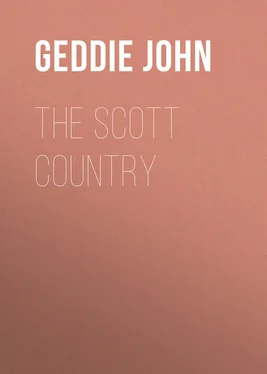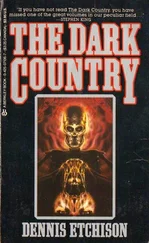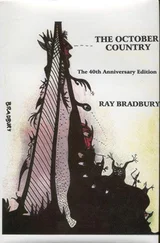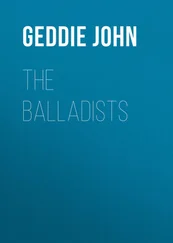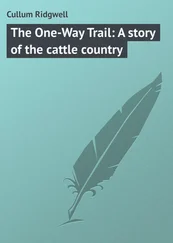John Geddie - The Scott Country
Здесь есть возможность читать онлайн «John Geddie - The Scott Country» — ознакомительный отрывок электронной книги совершенно бесплатно, а после прочтения отрывка купить полную версию. В некоторых случаях можно слушать аудио, скачать через торрент в формате fb2 и присутствует краткое содержание. Жанр: foreign_antique, foreign_prose, на английском языке. Описание произведения, (предисловие) а так же отзывы посетителей доступны на портале библиотеки ЛибКат.
- Название:The Scott Country
- Автор:
- Жанр:
- Год:неизвестен
- ISBN:нет данных
- Рейтинг книги:4 / 5. Голосов: 1
-
Избранное:Добавить в избранное
- Отзывы:
-
Ваша оценка:
- 80
- 1
- 2
- 3
- 4
- 5
The Scott Country: краткое содержание, описание и аннотация
Предлагаем к чтению аннотацию, описание, краткое содержание или предисловие (зависит от того, что написал сам автор книги «The Scott Country»). Если вы не нашли необходимую информацию о книге — напишите в комментариях, мы постараемся отыскать её.
The Scott Country — читать онлайн ознакомительный отрывок
Ниже представлен текст книги, разбитый по страницам. Система сохранения места последней прочитанной страницы, позволяет с удобством читать онлайн бесплатно книгу «The Scott Country», без необходимости каждый раз заново искать на чём Вы остановились. Поставьте закладку, и сможете в любой момент перейти на страницу, на которой закончили чтение.
Интервал:
Закладка:
John Geddie
The Scott Country / Beautiful Scotland
THE SCOTT COUNTRY
Where – and what – is the “Scott Country”? Edinburgh – his birthplace, the centre of his literary and legal activities, the scene of The Heart of Midlothian and of the Chronicles of the Canongate , his “own romantic town” – might surely claim to enclose, if not the kernel, an essential part of the interest that surrounds the fame and the name of Sir Walter. Around it, between the Pentlands and Lammermoors and the sea, is territory immortally associated with the life and the works of the “Master of Romance” – Lasswade and Roslin, Borthwick and Crichton, “Goblin Ha’” and Prestonpans,
“Auchendinny’s hazel glade
And haunted Woodhouselee”,
Linlithgow Palace on the western and “Wolfs Crag” on the eastern boundary of Lothian. Fife, on the strength of its possessions of Dunfermline, Falkland, St. Andrews, and other storied sites, might put forward a title to be ranked as a province of the Scott Country. So might Perthshire, by virtue of the “Fair City” and its “Fair Maid”, and joint ownership, with Stirling and Dumbarton, of entrancing scenes on Loch Katrine, Loch Ard, and Loch Lomond. Forfarshire also, wherein is placed the best remembered of the passages in The Antiquary , and even the distant Orkneys and Shetlands, have felt the touch of the Wizard’s wand.
Nor, in the briefest survey of the lands of Scott Romance, can one overlook the crumbling castles and the rugged shores once ruled by the “Lord of the Isles”; or the banks of the Clyde and Douglas Water; or the opposing shores of the Solway; or Redesdale and Teesdale, Gilsland and Triermain. The Peak District, Sherwood Forest, and the Marches of Wales; Kenilworth, and Woodstock, and even London streets themselves might tender a case for inclusion; while, looking farther afield, one is reminded that the genius of Walter Scott has cast its spell over the Ardennes and Touraine, Switzerland, Constantinople, and the Palestine of the Crusades.
These are, for the most part, merely excursions of a spirit whose abiding home or favourite haunt was the Valley of the Tweed and its encircling hills. Edinburgh itself, where there are so many rival memories, does not recall the author of Waverley so instantly and intimately to our thoughts and affections as Abbotsford; and the triple Eildon, rather than Arthur’s Seat, is the “high place” of the Scott cult. If he brought a new glory to the Border Country, it was the Border Country that “made him”, as a man still more than as a writer; and he is the most typical, as he is the most honoured, of its many famous sons.
The greatest as well as
“The last of all the Bards was he
Who sung of Border chivalry”.
The pull of the blood has in this instance proved more potent than that of birth and early environment; although Walter Scott was from his childhood, at Sandyknowe and Kelso, familiar with Border scenes, as well as steeped in Border lore. At a later stage in his growth, lame as he was, with Shortreed and other congenial companions he tramped the glens and climbed the hills and hill-passes of Tweedside, gathering and storing as he went its history and romance for the delight of future generations,
“Giving each rock its storied tale,
Pouring a lay for every dale,
Knitting, as with a moral band,
His native legends with his land,
To lend each scene the interest high
Which Genius beams from Beauty’s eye.”
But while he knew by heart the whole Borderland, and had explored its chief river from where
“Tweed, Annan, and Clyde
A’ rise in ae hill-side”,
to where it enters the sea, under the time- and war-battered walls of the ancient town of Berwick, there were parts of the Tweed and its tributaries that he knew better than others. There is, in the eyes of Scott devotees, an Inner Circle, a “Holy of Holies”, of the Scott Country, and, fortunately for the pilgrim to these shrines, its centre lies where the main lines of road and rail, like those of river-drainage, converge around the meeting-place of Ettrick, Gala, and Leader with Tweed – under the shadow of the Eildon Hills and beside those two “miraculous” products of the hand and brain of man – Melrose Abbey and Abbotsford House. The creative art, in prose and verse, of the Great Magician was not often exercised on the chief stream higher up than Neidpath and Manor, or, at farthest, “Merlin’s Grave”, beside Drummelzier and under Tinnis. Nor did his genius much frequent the lower courses of Tweed, below Kelso Bridge and Wark Castle, and the inflow of the “sullen Till”, although here also are many scenes of beauty and pages of story that might well have set his imagination afire. It seems more at home, also, in the valleys of the Teviot, the Ettrick, and the Yarrow than on the Leader, the Gala, and other northern affluents of the Tweed. Accident and propinquity may have helped to determine his choice of scene and theme; but old associations and affinities may have done still more. The nearer the Border line of the Cheviots, the thicker are footprints of the clan and national frays of old – of battles and skirmishes in which Scott’s own ancestry took more than their share; and the deeper and richer the soil of tradition in which he delighted to delve. To the Teviot, the Borthwick, and the Ettrick – to Branxholm and Harden, Rankleburn and Newark – he was drawn by the call of the blood of his father’s race; an equal tie bound him to the Jed, the old home of his mother’s kin, the “hot and hardy Rutherfords”; while Yarrow, the heart of his Forest Sheriffdom, is also the core of its ballad poetry. It has to be remembered, also, that the period of Scott’s greatest literary output was also the period of failing physical powers, and that journeys through his beloved Borderland had to be more and more circumscribed to beaten paths of easy access.
It was by Kelso Bridge, beside where the wand of the Wizard Michael Scott “bridled the Tweed with a curb of stone”, that, in the fresh morning of youth, the spell of the great Border river first fell on Walter Scott. His kinsfolk lived in the neighbourhood; and several of them are buried in the Abbey Aisle. His great-grandfather and namesake, the Jacobite “Beardie” who had fought at Killiecrankie, had occupied a house in the Coalmarket; his kindly Aunt Janet resided in what is now called Waverley Lodge; his uncle, Captain Robert Scott, a lover and collecter of books, had his home at Rosebank, which he bequeathed to Sir Walter, who – “his poverty not his will consenting” – sold this house of many memories, along with “thirty acres of the most fertile land in Scotland”.
Only a few miles away, beside the stark and far-seen old keep of Smailholm, was the farm of Sandyknowe, leased from Scott of Harden by his grandfather Robert Scott, to which, between the ages of three and eleven, the little boy from Edinburgh came annually for holidays. Everyone remembers the lines that record the impression made on his youthful mind by his “barren scene and wild” – by the tall, grey, weather-beaten tower looking down from its rock upon the lone lochan, and out and away over many scenes of Border romance to “the distant Cheviots blue”; and of the legends of foray and strife that were told in the boy’s wondering ears by the “aged hind”, and that took shape afterwards in “The Eve of St. John” and other tales of the Master.
What more natural than that young Walter, “become rather delicate from overgrowth” and threatened with permanent lameness, should be sent, while twelve or thirteen years of age, to his Kelso relatives for change, outdoor freedom, and recruitment? He went to the Grammar School as pupil, and even for a time as usher, under the Rector, Lancelot Whale, from whom are drawn some of the traits of “Dominie Sampson”. He delighted his master by his recitation of the “Speech of Galgacus”, and beguiled his school companions from their lessons by his tales of old romance. He read, in the arbour of his aunt’s old-fashioned garden, or under the ancient elm that still survives, Bishop Percy’s Reliques , the identical copy of which is in Kelso Library. Among his fellow-pupils were the Ballantynes, James and John, a fateful conjunction, for out of a hint dropped in a talk with the elder of these old schoolmates grew the Scottish Border Minstrelsy – the first two volumes of which were the earliest issued from the Kelso “Ballantyne Press”, in 1802 – and much else of note in Scott’s career and fortunes. A biographer may well say that it was “here he began to gather up his intellectual gains and make his friendly conquests”. Kelso gave bent and direction to his genius.
Читать дальшеИнтервал:
Закладка:
Похожие книги на «The Scott Country»
Представляем Вашему вниманию похожие книги на «The Scott Country» списком для выбора. Мы отобрали схожую по названию и смыслу литературу в надежде предоставить читателям больше вариантов отыскать новые, интересные, ещё непрочитанные произведения.
Обсуждение, отзывы о книге «The Scott Country» и просто собственные мнения читателей. Оставьте ваши комментарии, напишите, что Вы думаете о произведении, его смысле или главных героях. Укажите что конкретно понравилось, а что нет, и почему Вы так считаете.
